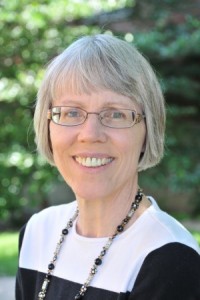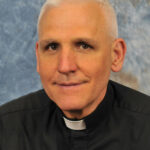By Barb Arland-Fye
Editor
We were in the hotel lobby for check-in when another guest mentioned that he was from California. My son Colin, who has a passion for atlases and road trips, immediately asked about the route the guest had taken, each interstate and highway. The man responded, not realizing that Colin was autistic and would engage him in a protracted Q&A. My husband Steve and I intervened, hoping to distract Colin and to rescue the bewildered guest from a most unusual conversation!

Conversations in Q&A format are Colin’s default communication method, whether he is talking with family, relatives and friends or strangers. Often, I think to myself, “Be careful what you pray for.” When Colin was 2 or 3 years old, I prayed fervently for him to develop meaningful language skills. At the time, he simply repeated what other people said or what he heard in his favorite Disney videos, or on the radio or TV. If I instructed him, “Colin, say your name,” he would respond, “Colin, say your name.”
We took him to speech therapy with Sister Marcella Narlock, OSF, at Mount St. Clare Speech and Hearing Center in Clinton, which helped him to expand his vocabulary and to learn to ask for the things he needed and wanted. As he grew, his conversations became an amalgam of independent thoughts and phrases from videos. One morning when I said goodbye to him as he headed out to the special school bus, he responded, “I love you, Belle!” (parroting a line from “Beauty and the Beast”).
At the end of each day during his childhood, Colin stood in front of the picture room in our living room, looking out the window and unloading every thought in his head, blissfully unaware of anyone else around him. This was his little world to which he apparently needed to escape. I prayed that his participation in that world would help him to better navigate the real world with its joys, challenges and unexpected changes.
Colin referred to us, his parents, as “Steve and Barb” during his early childhood, repeating what he heard others say. After his younger brother Patrick began talking and called us “Mom and Dad,” Colin used those titles, too.
In retrospect, perhaps I spent too much time correcting Colin’s autistic behavior rather than building his conversation-making skills, thinking that would convey an image of normalcy. His quirky and sometimes unacceptable behavior, in public, created some humbling moments.
Last Saturday night after Mass, when Colin approached Ethan, a college senior who occasionally plays the keyboard and organ during Masses at our parish, I took a deep breath. What would he ask Ethan? How would Ethan respond? I was talking to friends and could not overhear the conversation between Ethan and Colin, but knew instinctively that a Q&A was underway.
Patrick believes that Colin asks so many questions of others so that he can feel comfortable that everything is right in the world (even if it is not!). Life is a journey and Colin needs it mapped out. Atlases do that for him and so do Q&A conversations with everyone on the journey with him. Maybe my prayer for Colin to engage in meaningful conversation has been answered. It is not about what is meaningful for me, but what is meaningful for him.
(Contact Editor Barb Arland-Fye at arland-fye@davenportdiocese.org)











